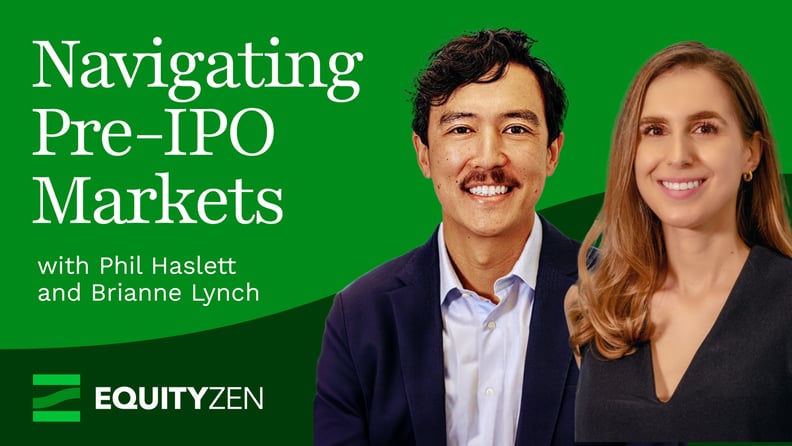Many private market investors invest with the hope that the company they invest in will eventually go public via an IPO. This is a really exciting milestone for both the company and early investors and employees. Not only does it allow the company to debut on a larger stage and enter its next phase of growth, but it also allows for ongoing liquidity if and when an investor decides to sell. However, there are certain steps and considerations that come into play, especially right after an IPO. Here we’ll dive into what private market investors can expect when their investment transitions to the public stock market.
Once a company announces its plans to go public the pre-IPO process begins. During this period, the company undertakes a variety of operational processes to help ensure a successful transition to the public markets. Before an IPO, shares are typically held by an equity administrator. Shareworks by Morgan Stanley and Carta are two of the most popular and use web portals to manage share ownership. After the IPO, shares are transferred to the custody of the transfer agent who works to transfer shares directly to each shareholder.
When the IPO happens, it’s an exciting day but not one that grants immediate liquidity to most private market shareholders, whether they are early employees, executives or investors. Shares acquired in the private markets are usually subject to transfer restrictions, the most common being the IPO lock-up period as defined in Rule 144 by the SEC. The standard IPO lock-up typically spans 180 days post-IPO, during which the stock cannot be traded*. While it can be frustrating to have to wait to sell your pre-IPO shares, this lock up is in place to ensure a smooth transition to the public market for private companies. When large shareholders hold their shares it provides stability to the stock price during this important period.
Why Choose EquityZen
Luckily, as an EquityZen investor you do not need to navigate these complexities on your own. We have experience from helping clients successfully exit over 100 company investments, including over 60 IPOs over our 11-year history. These exits have generated a net aggregate IRR of 43% for investors. When you invest in a fund via EquityZen, we will coordinate with the company and transfer agent to find out all of the details pertaining to any lock up restrictions for any shares that our investors have purchased and communicate this information to investors as soon as it is available. Post lock up, we will unwind the fund and work to exit your investment.
While you wait for the lock up period to expire, you can still monitor the performance of your investment by comparing the price you paid for your shares versus where the shares are trading in the public stock market. You can also follow company news and earnings releases that the company will now be required to report as a publicly traded company. This is one of the new benefits of holding shares in a public company.
Free to trade
Once the lock-up period or any other regulatory holding periods expire, investors in EquityZen single-company funds have a couple of options. They can choose to retain ownership of the stock and manage their investment independently through their brokerage account. Alternatively, they can opt for EquityZen to facilitate the sale of the stock on the open market via one of our brokerage partners and deliver the cash proceeds to them. This is the distribution method for any exits in EquityZen’s multi-company funds. Either way, EquityZen will facilitate the transfer of the stock or cash proceeds to a brokerage account designated by you, granting you the freedom to manage your investment as you see fit. If you choose to have the shares transferred, these shares can be freely traded just like any other public stock.
Navigating the transition from private to public investment status requires careful consideration of various factors. When you invest with EquityZen, we guide you through this process making sure you have all of the information you need to manage your investment. Regardless of whether you hold or sell your shares, the IPO is a big moment to be celebrated and an important milestone in your private market investment journey. Congrats!
![]()
Interested in browsing the private company investment opportunities available on EquityZen's marketplace?
Disclaimers & Sources:
*Lock-up periods will vary by offering; the issuer's S-1 will specify the length of the lock-up period.
Not all pre-IPO companies will go public or be acquired, and not all IPOs or acquisitions are or will become successful investments. There are inherent risks in pre-IPO investments, including the risk of loss of the entire investment, illiquidity, and fluctuations in value and returns. Investors must be able to afford the loss of their entire investment.
1. EquityZen data, as of April 2024









